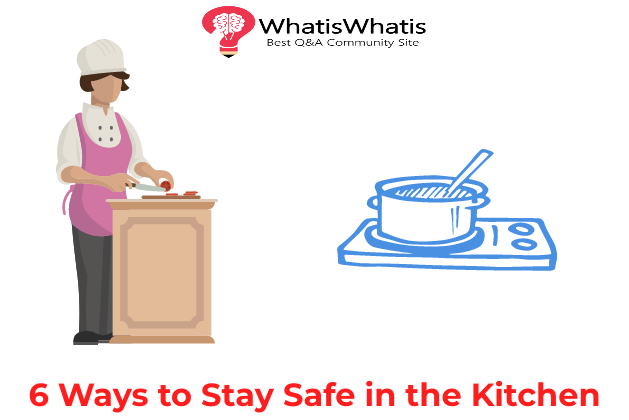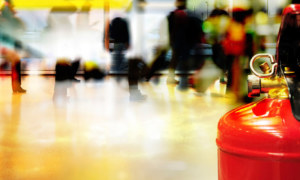You probably spend a lot of time in the kitchen—preparing meals for you and your family, heating food, even dining in it. A kitchen is a common place where family and friends gather to spend quality time. That’s why taking precautions and staying safe is important, so you can enjoy your kitchen without any mishaps. Read on to see 6 ways to stay safe in the kitchen.
What Are The Ways To Stay Safe in the Kitchen?
Dry Your Hands
A simple but effective measure to stay safe in the kitchen is to dry your hands often. Wet hands don’t have traction, and stuff can easily drop from your hands.
Know more: Essential factors to consider for a new housekeeping trolley!
This can be especially dangerous while handling knives and other sharp objects. Set a special dishtowel to dry your hands only so it doesn’t get dirty quickly. If possible, hang it on your apron for easy access.
Clean Every Surface
Kitchens are areas most prone to bacteria and filth since a lot of products pass through them while cooking. Debris and bacteria can accumulate on every surface and pose a threat to your health and safety.
Unclean surfaces can also infect your utensils, hands, and food. Clean and dry off every worktop after you are done to keep the space consistently clean. If you are handling raw meat, use a disinfectant after you are done to kill any bacteria left behind. If you spill something, clean it immediately to prevent any build-up and possible slips.
Clean Up the Clutter
Clutter builds up easily, especially in the kitchen that holds many utensils, dishware, and appliances—kitchen storage is important. It is very difficult and dangerous to work in a cluttered space.
You are at risk of knocking something over and getting hurt. Keep the path between fridge, stove, and counters clear of clutter. If you happen to knock something over—a glass, for example, stop what you are doing and see to clean up the mess as quickly as possible.
Read more: The Best Tips and Tricks for cleaning the Couches
Broken glass with shards flying all over is a big hazard and needs to be dealt with. Sweep the shards as carefully as you can and throw them away. Use a wet sponge to pick up any small leftover pieces, and vacuum the area.
Be Careful with Blades
Knives are one of the highest-risk utensils in a kitchen. Dry your hands often so you have a firm grip on the knives and other equipment you use. Clean knives after every use to prevent the spread of bacteria, and to store them safely to dry. Store the knives with the tip turned downward.
For further safety measures, store them in wood blocks or drawers separate from other utensils. Sharpen your knives regularly, since dull knives are more dangerous.
When cleaning other appliances with blades—blenders for example, carefully separate each part, clean them thoroughly, and put them away. Never touch a blade while the appliance is working.
Sturdy Surfaces and Shoes
Kitchens are often slippery and dirty, considering water spillage, oil splashes, and other mishaps. Tiles used in kitchens should never be smooth and slippery, but with ridges and patterns for better traction. If you want more traction and a lower possibility of slipping, you can place an anti slip mat on the floor.
It will help you walk safely around the kitchen, as well as protect the kitchen tiles. You should also wear sturdy shoes with non-skid soles. They can protect you from slipping, a fallen knife, broken glass, etc.
Use Proper Storage
Storage is one of the biggest issues in most homes. If you have a smaller kitchen, you will have to be creative about your storage, so that everything fits and is safely stored. Cabinets are basic places for storing your kitchen items.
Read more: What Are the Different Types of Dry cleaning?
Always store heavier items, like pans and pots, in countertop cabinets, and lighter items in wall cabinets. These can be glasses, cups, and small plates. If you store leftovers in the fridge, plastic containers are much safer breakage-wise, while glass containers are more sustainable.
No matter how much time you spend in the kitchen, you should always practice safety to prevent any hazards from happening. It is easy to get hurt in the kitchen, so always be aware of your surroundings and carefully use your appliances and tools. For added safety, keep a first-aid kit in the kitchen.






Leave a comment